- Home
- entertainment
- news
- 24 surprising things you probably didn't know about the 'Mary Poppins' movies
24 surprising things you probably didn't know about the 'Mary Poppins' movies
Marilyn La Jeunesse

- "Mary Poppins" (1964) came out over 55 years ago, and the long-awaited sequel was released in 2018.
- Dick Van Dyke played two characters in the original film, and he appeared in a small role in "Mary Poppins Returns."
- Disney pushed back the production of "Mary Poppins" to ensure Julie Andrews could play the leading role.
- The 1964 film's composers spent two and a half years writing the songs for it.
Over 50 years after the original release of "Mary Poppins" (1964), Disney released the long-awaited sequel "Mary Poppins Returns" in 2018.
Here are some cool behind-the-scenes secrets about "Mary Poppins" and "Mary Poppins Returns."
Dick Van Dyke played two characters in "Mary Poppins," and he made an appearance in "Mary Poppins Returns."
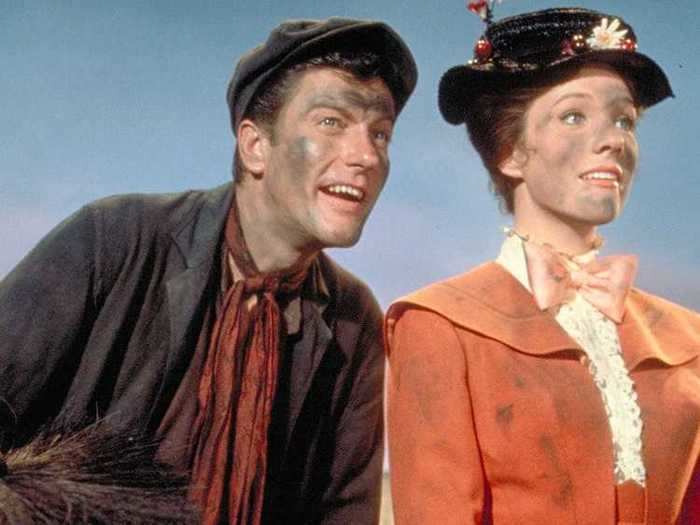
In addition to his leading role as Bert, the jovial chimney sweep, Dick Van Dyke appeared in the film as Mr. Dawes Sr. under the acting credit "Navckid Keyd."
The letters unscramble themselves during the end credits to reveal the actor's real name.
Nearly 50 years later, Van Dyke appeared in "Mary Poppins Returns" as Mr. Dawes Jr., the son of his bonus character from the first film.
Dawes Jr. was originally played by the late Arthur Malet in "Mary Poppins."
Disney offered Julie Andrews the role of Mary Poppins after seeing her in a musical.
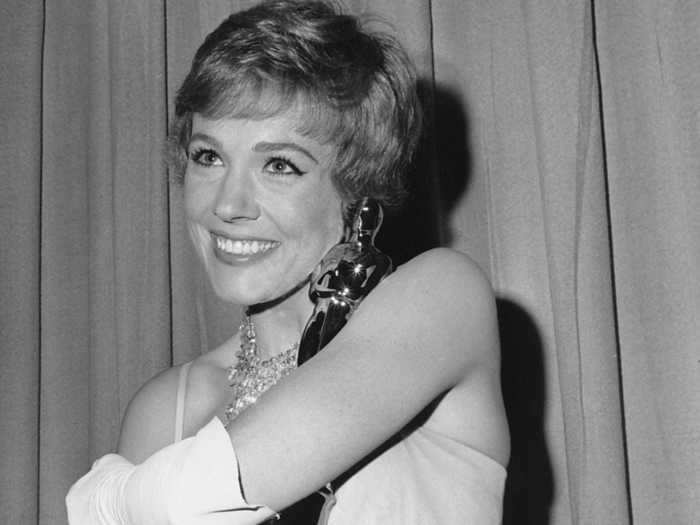
In 2004, the Los Angeles Times reported that Disney offered Andrews one of her most iconic roles after seeing her in "Camelot" on Broadway.
At the time, Andrews was playing Guinevere in the musical.
Disney postponed the production of "Mary Poppins" so that Andrews could have the leading role.
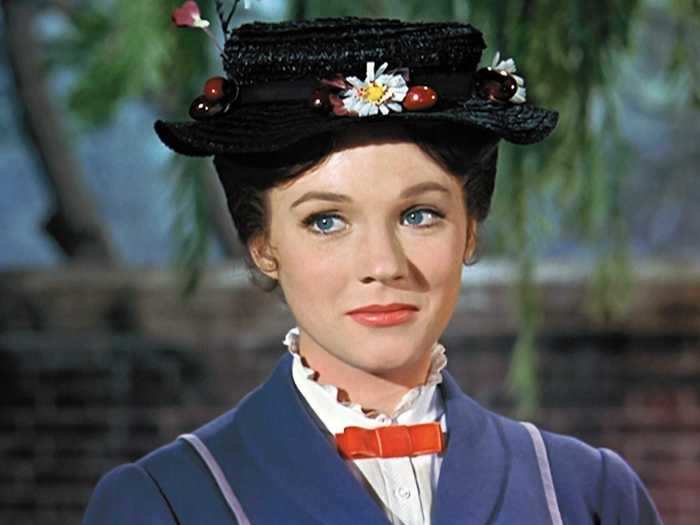
The actress was pregnant when Disney offered her the role, but he wanted Andrews to play Mary Poppins so badly that he postponed filming for her, according to the same Los Angeles Times article.
Andrews did not appear in the sequel because she wanted audiences to fully appreciate Emily Blunt's portrayal of the leading role.
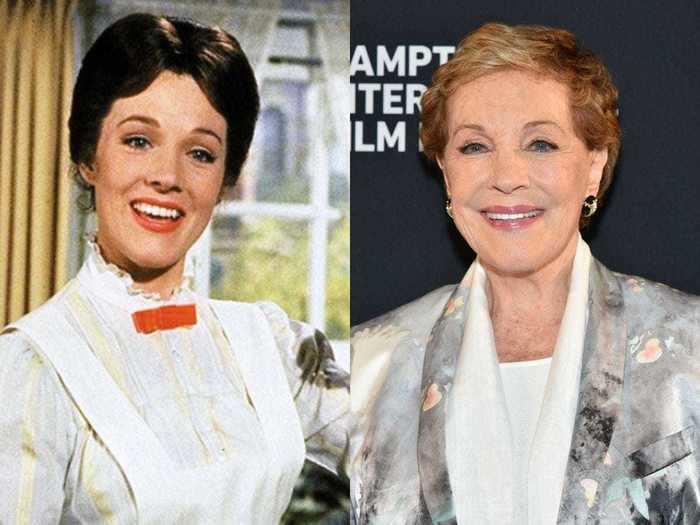
Rob Marshall, the director of "Mary Poppins Returns," told Entertainment Weekly in 2017 that Andrews declined a role in the new movie because she wanted people to focus on Emily Blunt's performance in the leading role.
Marshall recalled Andrews' response saying, "She made it clear right up front. She said, 'This is Emily's show, and I really want it to be Emily's show. I don't want it to be, Oh, here comes that Mary Poppins. I don't want that. I really want her to take this and run with it, because she will be brilliant.'"
The word "supercalifragilisticexpialidocious" was made popular by the film, but it's unclear what its origins are.
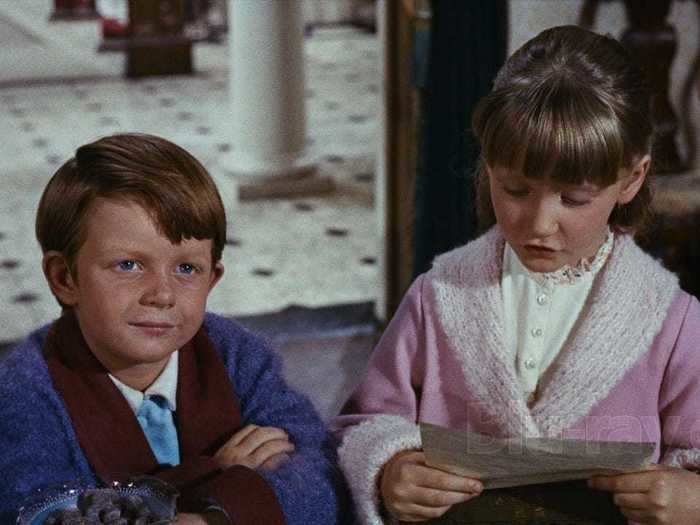
The word "supercalifragilisticexpialidocious" was added to the Oxford English Dictionary with the definition "extraordinarily good; wonderful."
In the film, the word is meant to be used when you have nothing to say.
The film's composers, Richard and Robert Sherman, are often credited with the creation of the word, and they have said they made it up.
The earliest written record of a variant of the word is in a 1931 newspaper column by Helen Herman, and another close variant was used by a different group of songwriters in 1949.
Andrews had an accident on set while filming a flying sequence.
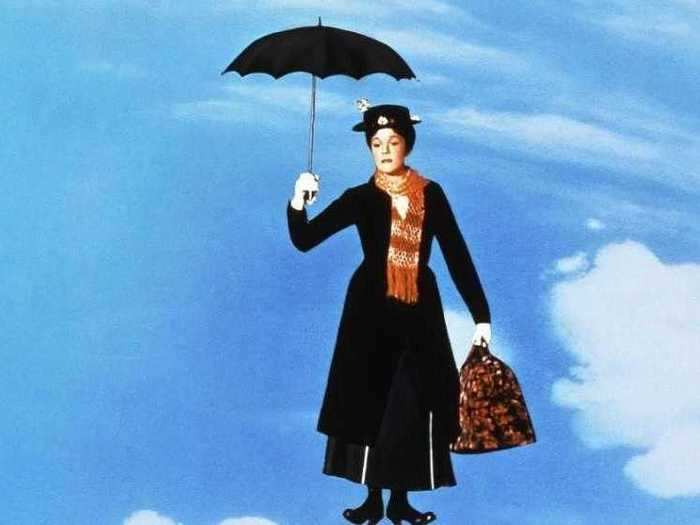
In an interview with Stephen Colbert on his show in 2017, Andrews said she almost got hurt filming her final flying scene in "Mary Poppins."
According to the actress, she was up in a harness after filming the stunt when she felt a rope slip before she "plummeted to the stage."
Luckily she wasn't hurt during the fall.
"Mary Poppins" was Andrews' first film that was released in theaters.
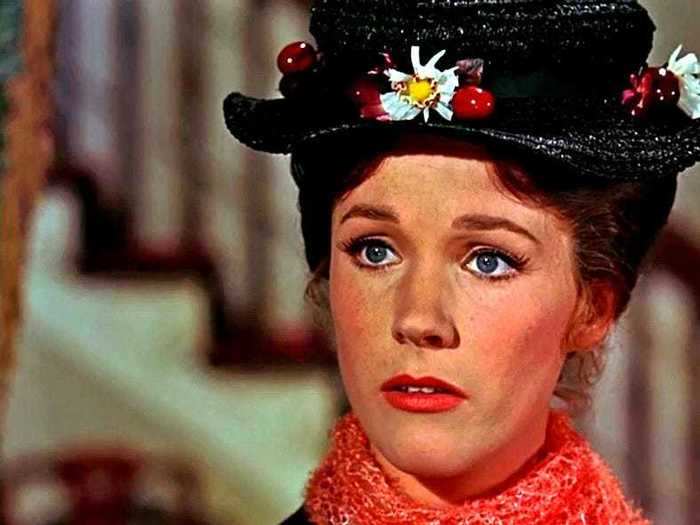
Although she had appeared in TV movies, on shows, and voiced a character in an animated film, "Mary Poppins" was Andrews' first major live-action movie.
It was the role that launched her illustrious film career.
"Mary Poppins" was the highest-grossing film of 1964.
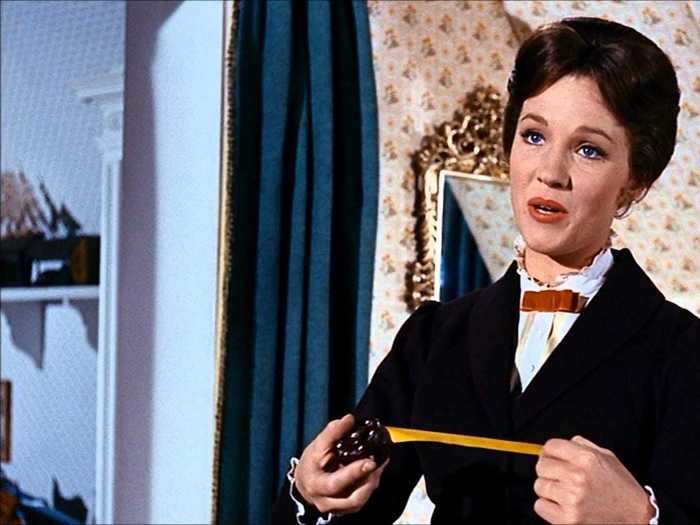
Beating out Audrey Hepburn's "My Fair Lady" (1964), "Mary Poppins" was the highest-grossing film of 1964 with over $102 million earned in the US and Canada, according to IMDb.
Runner-up film "My Fair Lady" grossed just over $72 million in the US and Canada.
"Mary Poppins" won five Oscars in total.
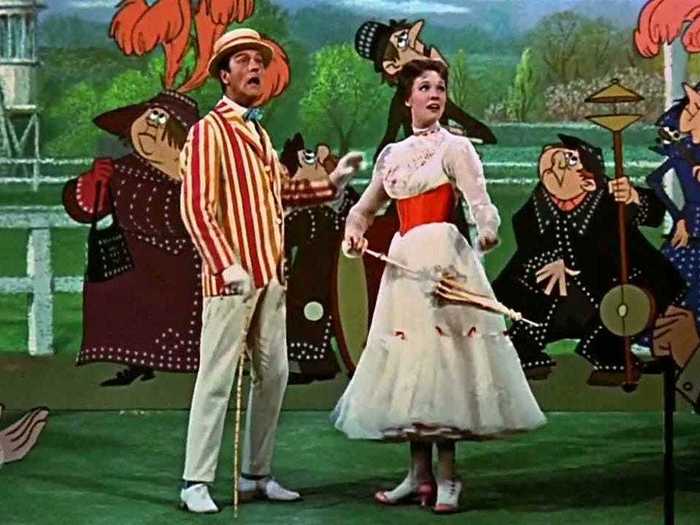
"Mary Poppins" earned five Oscars in 1965. Among other wins, Andrews won for best actress and the Sherman brothers won for their hit songs.
The films were based on a series of children's books by author P.L. Travers.
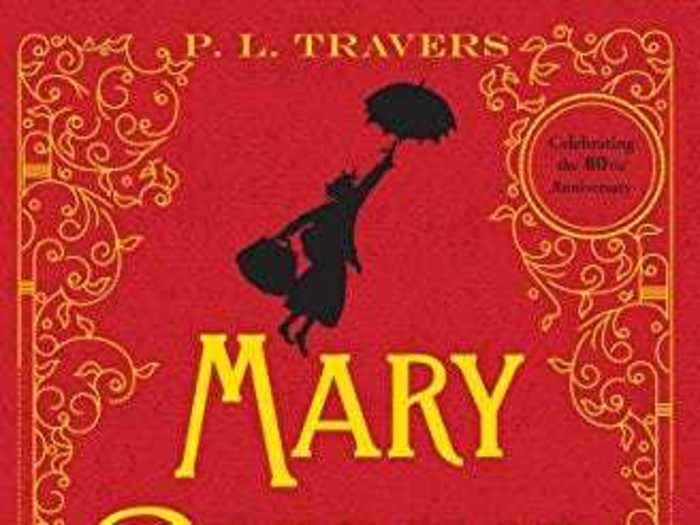
"Mary Poppins" and "Mary Poppins Returns" are based on a children's book series by Australian-English writer P.L. Travers.
There were four books in the original series: "Mary Poppins," "Mary Poppins Comes Back," "Mary Poppins Opens the Door," and "Mary Poppins in the Park."
Other books and short stories were added to the series later on, including a cookbook called "Mary Poppins in the Kitchen."
Disney waited 20 years for Travers to approve its bid for a movie adaptation.
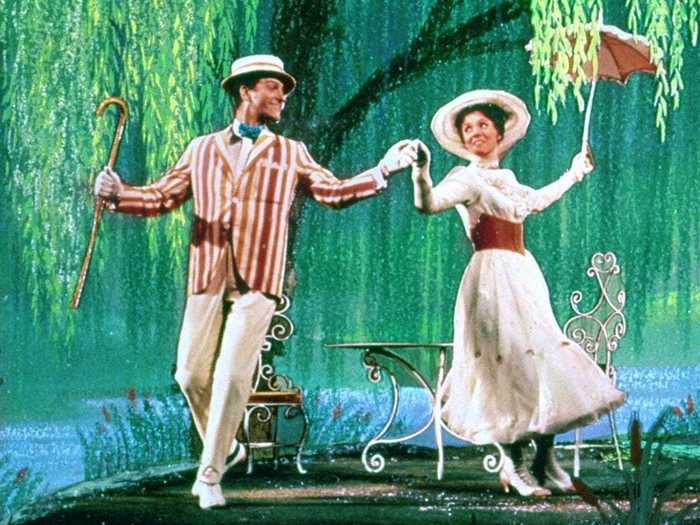
Disney originally put in a bid for film rights to Travers' novel "Mary Poppins" in the early 1940s, but it took 20 years for the company to convince the author to accept, according to Smithsonian magazine.
Bert was not really a character in the original "Mary Poppins" books.
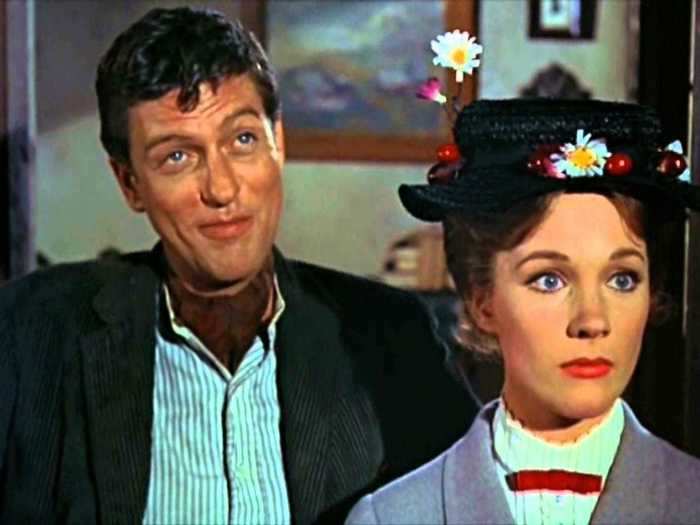
The character was added in the movie, and Van Dyke's fun portrayal of the role has become iconic.
Travers has been open about her issues with Disney's adaptation of "Mary Poppins."
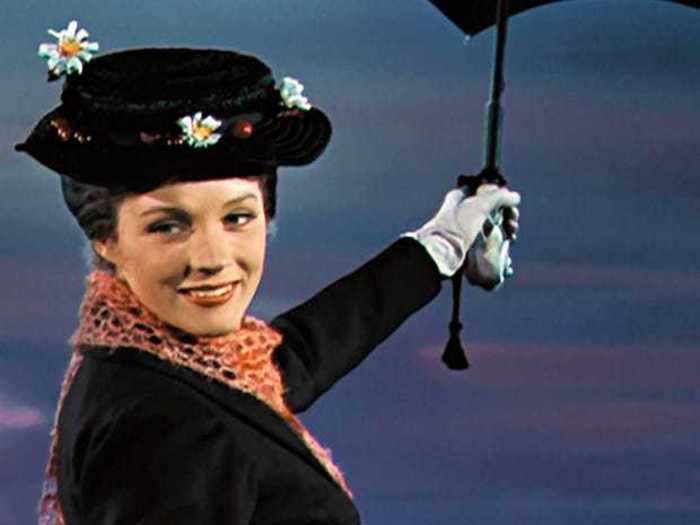
Despite being part of several meetings with Disney creators, Travers said she never approved of the final version of the "Mary Poppins" film.
Although Disney followed her request not to make the movie entirely animated, Travers later also said she wanted the animation sequence in the film to be removed, but that she was told it was too late to do so.
According to the New Yorker, Travers cried while watching the premiere of the movie. Unfortunately, they weren't tears of joy.
In 2004, the film was adapted into a Broadway musical.
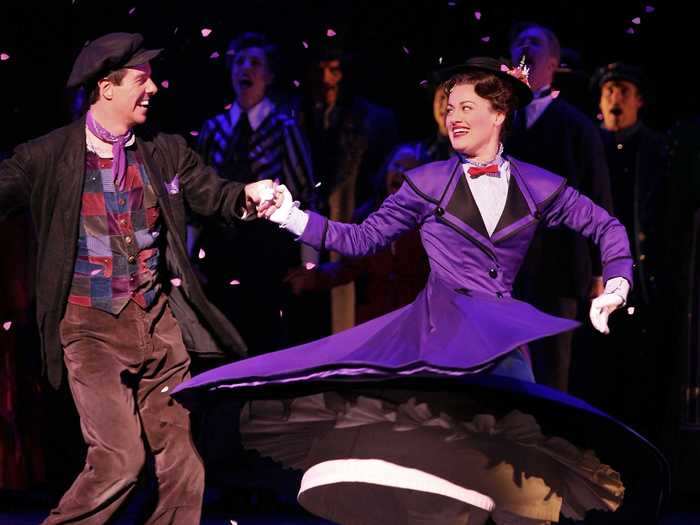
Before her death in 1996, Travers allowed the creation of the "Mary Poppins" stage production produced by Sir Cameron Mackintosh.
"Mary Poppins" ran on Broadway from 2004 to 2013, and it was nominated for seven Tony Awards. It ended up taking home the award for best scenic design of a musical.
Travers' estate allowed the sequel to be made.
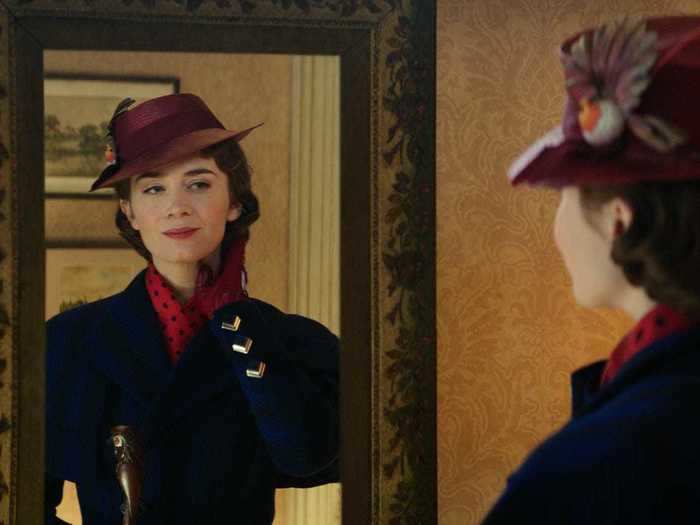
Travers' estate granted Disney the rights to produce the "Mary Poppins" sequel under the stipulation that they treat the material "carefully," according to Entertainment Weekly.
Van Dyke was criticized for his accent in the film.
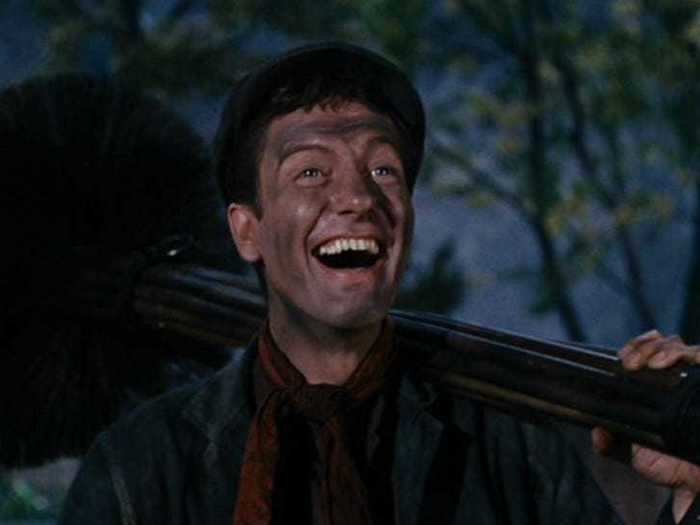
Several decades after the release of the film, the American actor told The Guardian he was sorry for his "atrocious cockney accent" in "Mary Poppins."
Karen Dotrice and Matthew Garber starred on screen together before and after "Mary Poppins."
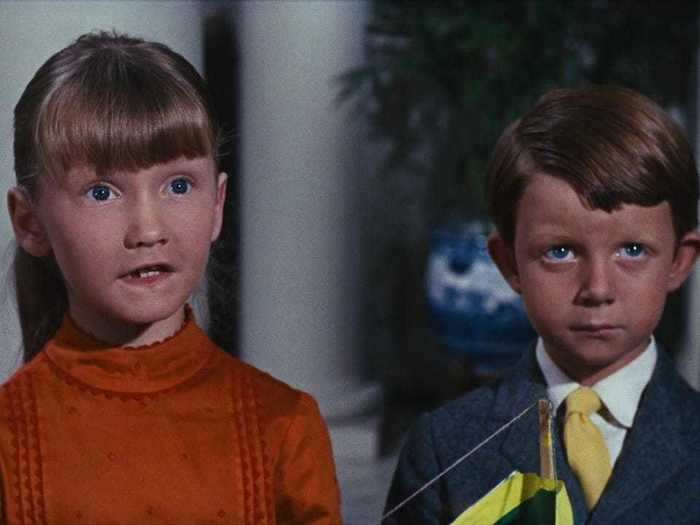
Starring as Jane and Michael Banks in "Mary Poppins" was not the first or last time Karen Dotrice and Matthew Garber worked together.
They first starred alongside each other in "The Three Lives of Thomasina" (1963) and went on to appear together in "The Gnome-Mobile" (1967).
The "Supercalifragilisticexpialidocious" scene took so long to film and perfect that the kids got sick of eating the toffee apples.
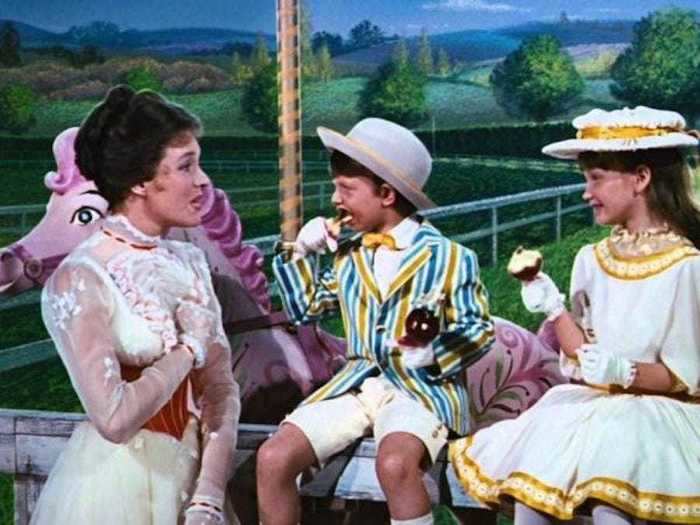
In an interview with The Guardian, Dotrice said, "There were so many retakes of the Supercalifragilistic scene that we got sick of the toffee apples we were supposed to be eating."
She said after two weeks of trying to switch up the flavors, the prop guys "just gave up."
The film's popular songs took two and a half years to write.
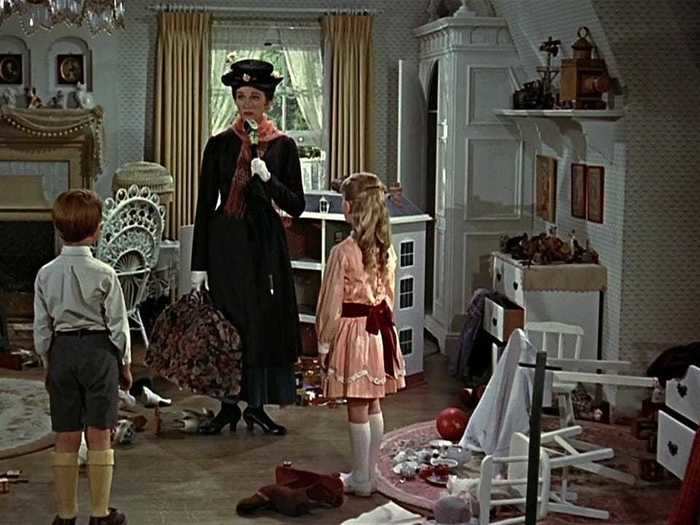
Richard and Robert Sherman, who are are behind the tunes from "Mary Poppins," said they crafted dozens of songs for the film — and some were never used.
"Bob and I spent two and a half years writing 34 songs, many for sequences that were never used, since we didn't have a final script to work to," Richard told The Guardian.
Richard Sherman said his favorite Disney project was "Mary Poppins."
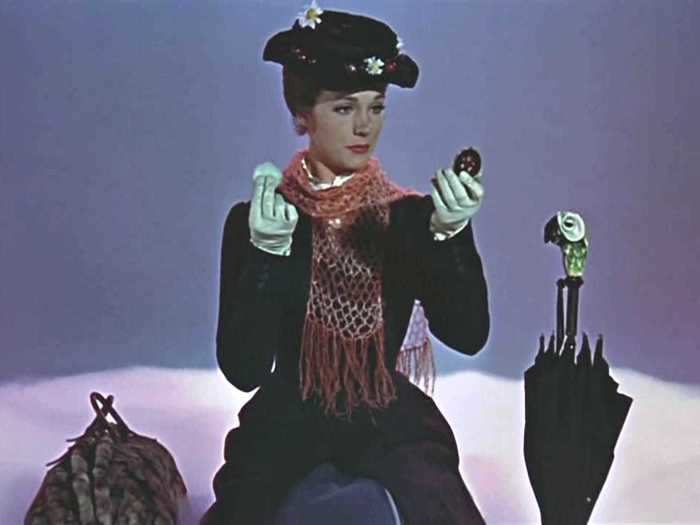
The Sherman Brothers composed several songs for Disney, including the incredibly popular "It's a Small World" tune. But Richard said he's most proud of his work in "Mary Poppins."
When asked what his favorite Disney project was, he told BMI in 2014, "It has to be 'Mary Poppins.' 'Mary Poppins' was our magnum opus."
The song "A Spoonful of Sugar" was supposedly inspired by Robert Sherman's son.
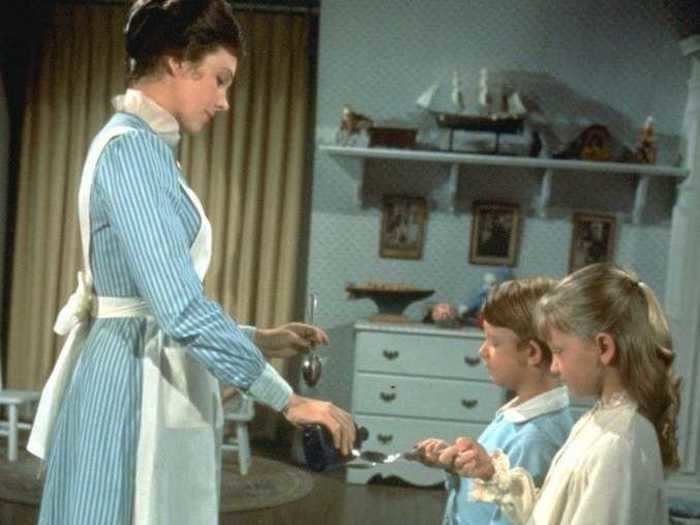
After receiving the polio vaccine, Robert Sherman's son told his father he was given a lump of sugar on a spoon.
This was the inspiration for the famed song in "Mary Poppins," according to writer Joe Schwarcz's article on the history of the phrase "spoonful of sugar" that was published on McGill University's Office for Science and Society.
Composer and songwriter Richard Sherman cried when he heard Andrews perform "A Spoonful of Sugar."
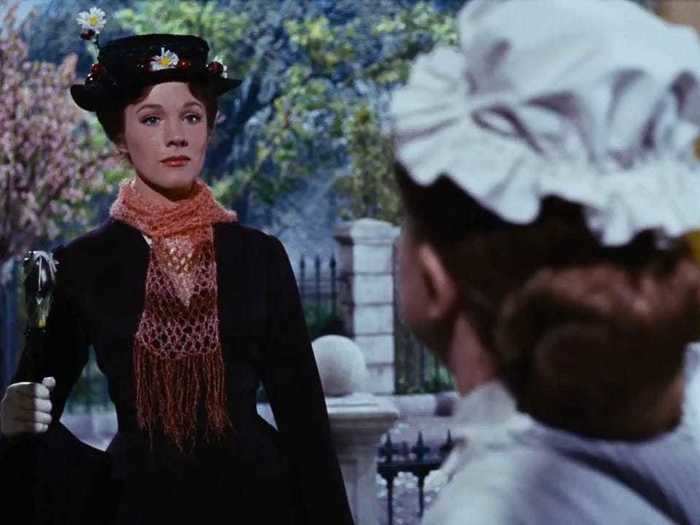
The composer said he got emotional over Andrews' rendition of the song.
"The best moment came when I first heard Julie Andrews singing 'A Spoonful of Sugar.' I was crying because she was articulating the whole essence of the movie — which was about the power of love," he told The Guardian.
The soundstage where "Mary Poppins" was filmed was later named after Andrews.
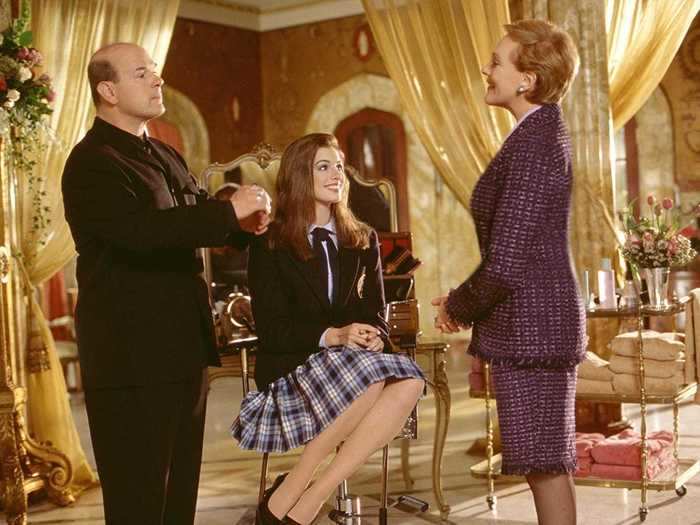
"Mary Poppins" and "The Princess Diaries" (2001) were shot on the same soundstage, which Disney renamed in 2001 to honor Andrews.
David Tomlinson voiced George Banks and Mary Poppins' parrot umbrella.
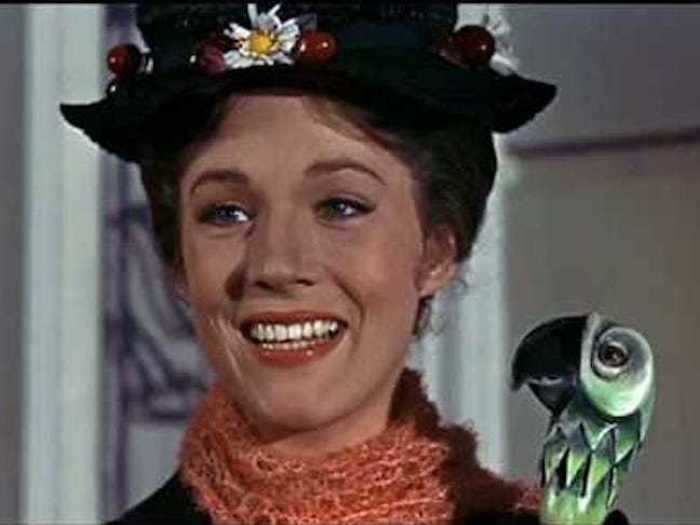
David Tomlinson, who played Mr. Banks, was also the voice of Mary Poppins' talking umbrella, according to Brothers' Ink Productions.
Read more:
READ MORE ARTICLES ON
Popular Right Now
Popular Keywords
Advertisement